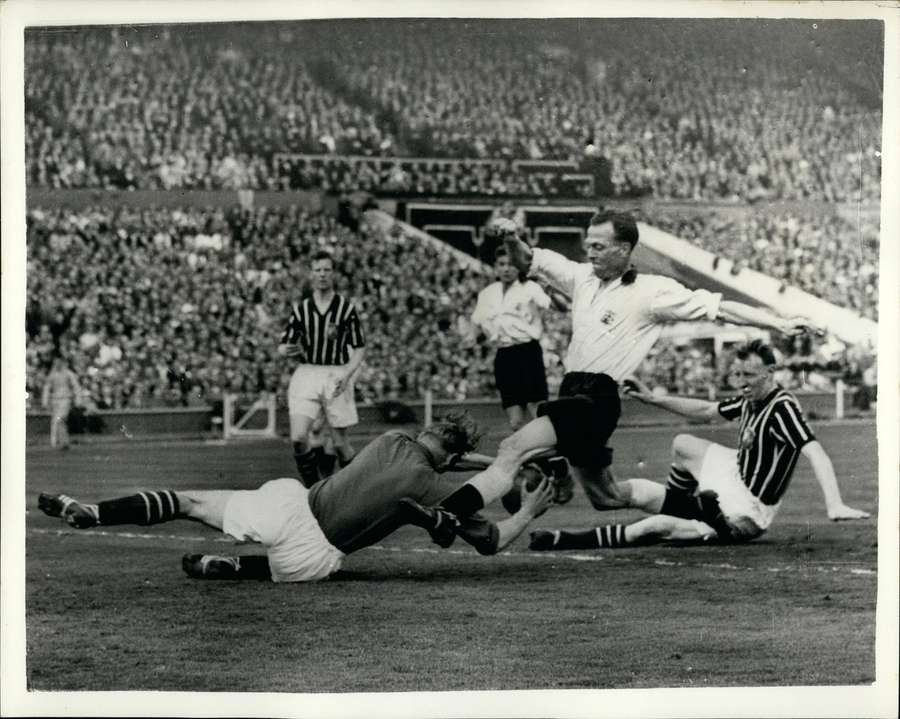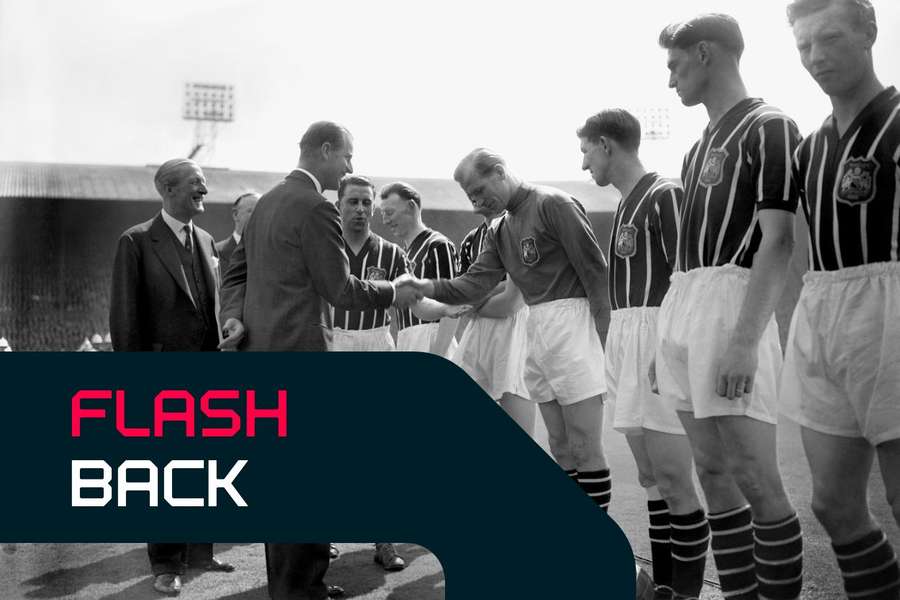During the closing stages of the game, Bert Trautmann, playing in a goal for Manchester City, suffered a broken neck in a tough tackle with the opponents. Despite a serious injury, Trautmann finished the match and helped his team win. It symbolised his resilience and the grit of his entire life story.
Dark wartime past
Bernhard Trautmann was born into a working-class family in Bremen (Germany) in 1923. When he was 10 years old, he joined the Jungvolk, the junior section of the Hitlerjugend (Hitler Youth). The Jungvolk served as an organization for boys aged 10 to 13 with a program of outdoor activities, parades and sports, and the aim to indoctrinate its young members in the tenets of Nazi ideology.
Then, Trautmann joined the Luftwaffe (air force of Nazi Germany) early in the Second World War, and served as a paratrooper. He fought on the Eastern Front for three years, earning five medals. Later in the war, he was transferred to the Western Front, where he was captured by the British as the war drew to a close.
As a volunteer soldier, he was classified a category 'C' prisoner, meaning he was regarded as a pure Nazi. One of only 90 of his original 1,000-man regiment to survive the war, he was transferred to a prisoner-of-war camp in Ashton, Lancashire.
Later, Bernhard Trautmann refused an offer of repatriation, and following his release in 1948, decided to settle in the region of Lancashire, combining farm work with playing football for a local football team, St Helens Town.

From zero to hero
Bernhard Trautmann's performances at St Helens earned him the English nickname Bert, and mainly attracted the attention of bigger football teams. In 1949, he signed for Manchester City, a club playing in the top tier at the time.
The club's decision to sign a former Nazi trooper sparked protests, and 20,000 people attended a demonstration. Over time, he gained acceptance through his performances in the City goal, playing in all but five of the club's next 250 matches.
Trautmann excelled at shot-stopping, particularly penalties, saving 60% of those he faced over the course of his career. In addition to his great reflexes, he also stood out for his tenacity and courageous saves.
Bert Trautmann won the Footballer of the Year award in 1956 and helped his Manchester City team win a major trophy in the same year. The FA Cup final on May 5th, 1956, between Manchester City and Birmingham City, went down in history.
Serious injury and other blows of fate
In the 75th minute of the FA Cup final, Bert Trautmann, diving at an incoming ball, was knocked out in a collision with Birmingham City's Peter Murphy in which he was hit in the neck by Murphy's knee. No substitutes were permitted in those days, so Trautmann, dazed and unsteady on his feet, continued in the match.
For the remaining 15 minutes, he defended his net, making several other crucial saves. Manchester City held on for the victory. Trautmann admitted later that he had spent the last part of the match 'in a kind of fog'.
The severity of the injury was only revealed by an X-ray examination, which Trautmann underwent four days after the match. His doctor diagnosed the fractured vertebra and glossed it as 'you should be dead'.
Trautmann's recovery took several months, resulting in him missing a large part of the 1956/57 season. This bad period for Bert Trautmann was marked by an even worse incident. He and his wife, Margaret, an Englishwoman whom he met in St Helens, lost their firstborn son, John. He was killed in a car accident a few months after the FA Cup final in 1956, aged five.
Bert and Margaret went on to have two more sons, but their marriage was forever scarred by John's death. The couple divorced in 1972. Bert Trautmann then married twice more. He died in 2013 at the age of 89.
Trautmann's incredible story is brilliantly portrayed in the biographical movie The Keeper (2018), directed by Marcus H. Rosenmuller. We highly recommend the movie, and not just to football fans.

